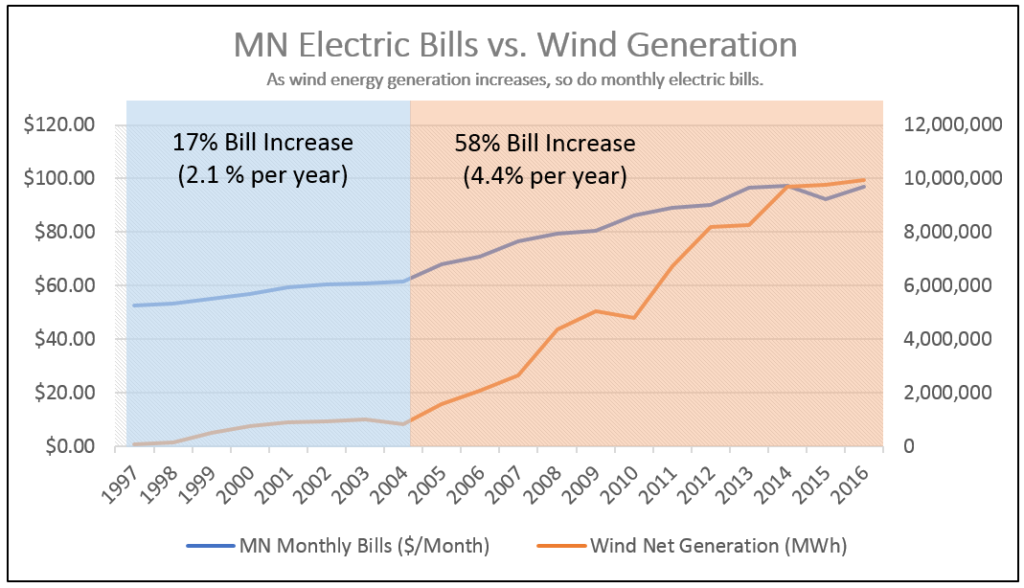Minnesota Electric Bills Have Increased 58% Due to Expensive Wind Energy Investments
Electric bills in Minnesota have increased substantially due to wind energy investments, but even in light of this information, there are organizations that go to great lengths to conceal this fact.
One of these organizations is Fresh Energy.
In its most recent attempt at correcting the Center of the American Experiment, Fresh Energy claimed that “Minnesota’s electricity bills are among the lowest in the Midwest.” But this is incredibly misleading and entirely misses the fact that Minnesota uses less electricity than other states. So, naturally, Minnesota has lower electric bills.
If Fresh Energy wants to compare Minnesota’s electric bills with other states, it must compare electricity utilization, as well—otherwise the comparison is apples to oranges.
Electric bills have risen 58 percent since 2004—or 4.4 percent per year—even though electricity use in Minnesota has been relatively flat since then.
This is compared to the period from 1997 to 2004, when bills rose 17 percent—or 2.1 percent per year.
What changed to cause electric bills to increase if not increasing energy usage? Investing in wind energy.
Wind energy’s share in Minnesota’s electricity generation mix has increased from .12 percent in 1997, to 1.5 percent in 2004, to 16.7 percent in 2016. The year 2005 marked the first year where wind energy nearly doubled its share in the energy mix.
Just take a look at this graph.

Electric bills continue to rise in Minnesota because electricity companies raise their prices to pay for the high cost of installing new wind energy.
For example, from 2004 to 2016, residential electricity rates increased a staggering 66.5 percent—or 5.1 percent per year. This rise corresponded with the increase in wind installations, which grew 230 percent between 2004 and 2016 from 39 plants to 129. Due to the current rate-making process, the cost of building these plants factored directly into our electricity rates.
But Fresh Energy doesn’t want you to notice that. According to the organization:
No one has ever sat around the dinner table discussing how electricity rates impact the family budget; what matters for their budget is their total electric bill.
Unfortunately, Fresh Energy’s analysis is misleading and reveals the organization as a special interest group working in favor of renewable energy companies.
Mitchell Rolling ([email protected]) is an intern at Center of the American Experiment.